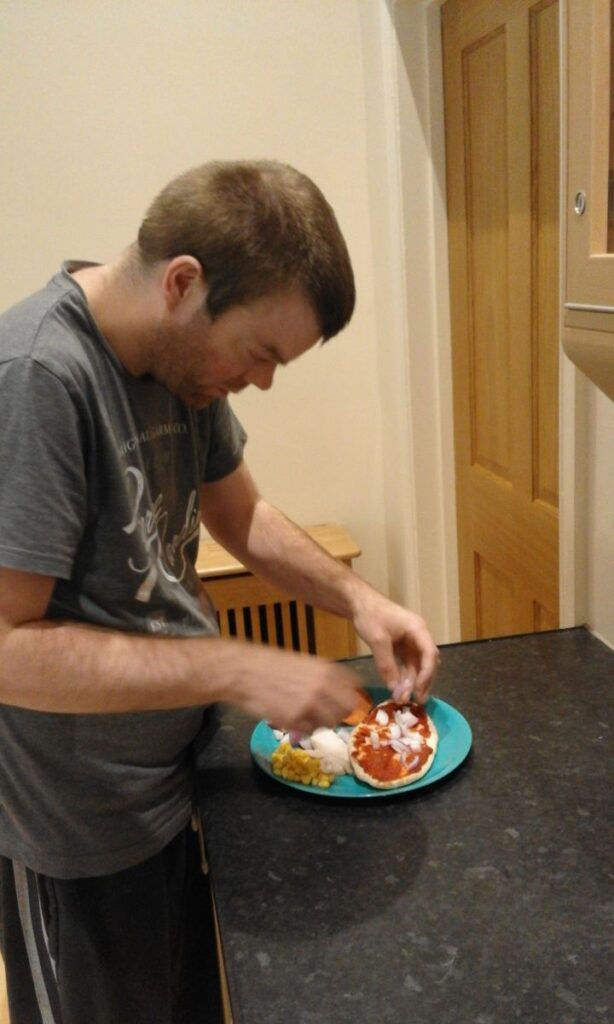From making a cup of tea, to going to work or mopping the floor – most of our days are quite… ordinary. These daily tasks aren’t headline news, but for many individuals with learning disabilities achieving these tasks can be out of their reach.
Continuing our series looking at the integration of Positive Behaviour Support (PBS), we explore how Active Support is used to ensure everyone across Home From Home Care can lead an ‘ordinary life’.
Most people with learning disabilities want to complete normal day to day activities, spend time with friends and family and be a contributing member of the community just as much as everyone else. However, to be able to access these opportunities they may need additional help. Active Support is a culture of working with individuals rather than caring for – helping to promote independence and take an active part in their life.
“People often take for granted the skills we’ve learnt in life or the outcomes we achieve each day and how much this can mean to us. It’s important that we don’t take these opportunities away from the people we support and offer the right level of assistance when required to help somebody achieve this.” Says Luke Murphy, Positive Behaviour Support Communication and Partnership Manager.
The PBS team structure enables staff members to gain coaching and mentoring on how best to apply Active Support in the homes. Staff learn how to break down tasks or try new techniques to help each individual achieve their goal.
When someone has a physical disability, it may seem a challenge to complete cleaning tasks. Yet with support, the task can be altered slightly or by providing hand over hand guidance, an individual can complete it for themselves. Even something such as making a cup of tea, requires a number of steps to get to the goal and each step in the process does not give much immediate reward. By applying ‘Backward training’ – a process of building up an understanding of the steps from the end of a process to the beginning, a link between the result and the action can increase attention span for an activity.
Actively engaging in everyday activities leads to positive feelings of self-worth and can proactively support reductions in behaviours that challenge, preventing the need for other interventions and increasing quality of life.
Support staff continue to encourage progress and greater independence at all times, moving from full, hand over hand support towards using less intensive support such as gestural prompts. All our staff play a vital role in challenging assumptions to continually promote best practice. Individuals across Home From Home Care are provided with the right support, at the right time to help them achieve what many would have once thought of as impossible. Through staff determination and hard work, individual’s goals are enabled, leading to more positive and inclusive access to the community.
Positive Behaviour Support threads throughout the organisation. We believe everyone has the opportunity to flourish and live a fulfilled life – having an outcome based, proactive approach to delivery of support enables us to really make that difference.







